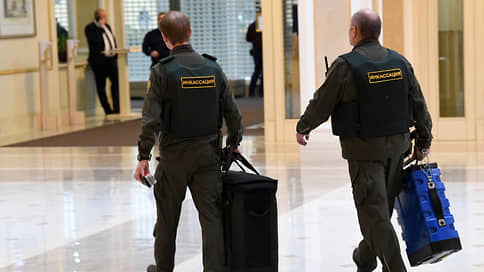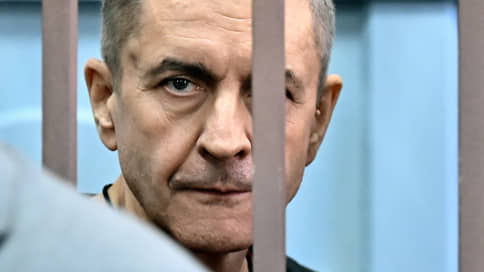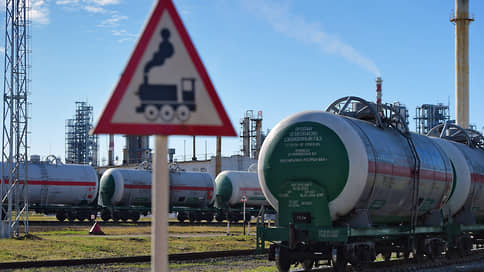The Central Bank has submitted a plan to regulate the collection market

The Central Bank is going to regulate the collection market, for which it is planning to lead the register of participants who will be supervised by the regulator. In addition, to stimulate this business, it is supposed to provide tax benefits. The collectors support the very idea of reforming the industry, but diverge in the approaches, and experts indicate the difficulties in the implementation of benefits and the formation of the registry.
The Bank of Russia has submitted a plan for regulating the collection market, which was developed on the basis of a discussion of the regulator report presented last year (see “Kommersant” dated September 2, 2024). One of the main innovations will be the creation of a register of market participants who will regularly report to the Central Bank and be under its supervision. To increase the margin of business, the regulator proposes to work out the introduction of tax benefits for collection companies.
During the discussion, three models were proposed. The “Unified Operator” model implied the creation of a single national operator with an exclusive right to carry out the collection and transportation of cash. In the “competition” model, it was about creating conditions for attracting more organizations to the provision of cash transportation services. The “Combined” model combined the conditions of the “competition” model with the attribution of part of service providers as systematically significant collection companies (SIZK).
It was decided to refuse the option of creating a single operator, because on the example of Belarus, where this model was implemented, it became obvious that monopolization leads “to an increase in prices for services, loss of flexibility”, and reducing the infrastructure for making cash payments. A combined model is considered preferable to the Bank of Russia. However, it is not possible to establish uniform requirements for determining the SIK, so the largest market participants-Rosinkas, Sberbank and FSUE GTSSSS (Special Communications)-have “different status and different legal forms”. Therefore, the Central Bank decided to proceed with the implementation of the “competition” model, subsequently implying the transition to the “combined” model.
According to BusinesStat, in 2019–2023, the turnover of the collector services market decreased by 32% – from 31 trillion rubles. up to 21 trillion rubles. The situation was aggravated with the departure from the market of one of the largest operators – Incranna (See “Kommersant” dated 23 November, 2023). The margin of the collector business is low, estimated at 1.5–2% (see “Kommersant” dated September 2, 2024).
At the same time, the largest market participants, recognizing the need for its reform, sometimes occupy opposite positions. Dmitry Polyakov, chairman of the NDD Association Expert Council, is confident that the SZIC is necessary to allocate, but the implementation routes must be worked out. In his opinion, tax benefits or other incentive methods should be the same for everyone. “This will contribute to the retention of tariff growth, and at remote points it will ensure the availability of these services and the continuity of their activities,” the expert explains. According to Sberbank, the creation of a single register « will enhance the transparency of the market, ensure the necessary level of reliability and improve the quality of collection services. »
At the same time, the president of the Rosinkas association Vasily Medvedev believes that the main problem of the collection market is the lack of fair competition. In particular, he notes the complexity of competition with ecosystems in which « the collection service is included in the complex of services of the corporate segment and is sold in a package with other services. » In addition, according to him, the “special communications” works according to a separate law, transporting special goods and values, and is not superfigured to the Bank of Russia. Therefore, Rosinkas supports the introduction of tax benefits, but they should only be for those companies for which the transportation of values is the main service. “Expand these benefits to credit organizations working in recent years with super -profit, the idea is dubious,” he said.
Experts also note the need to reform the market, but consider it insufficient to introduce a register and the provision of benefits. According to the MVA-Professor of the Digital Finance of the Presidential Academy of the Presidential Academy of the Russian Academy of Sciences, Alexei Voilukov, the goal set by the Bank of Russia in the competition model, to attract new players to the market, it looks difficult to comprehend, since this business is low-marginal and it is unlikely to change this with tax benefits.
There is no complete understanding of the principles of the formation of the register. Vasily Medvedev believes that the inclusion of companies in the register should be based on a certain standard, but now this is impossible to do, since market participants are not on equal terms. Alexei Voyulukov believes that the register should be an exclusively informative resource – a quality mark of quality, showing that it is safe to work with companies from the registry, and it makes no sense to prohibit any collection for those who are not in the register.








:format(webp)/s3/static.nrc.nl/images/gn4/stripped/data133314127-765aec.jpg)